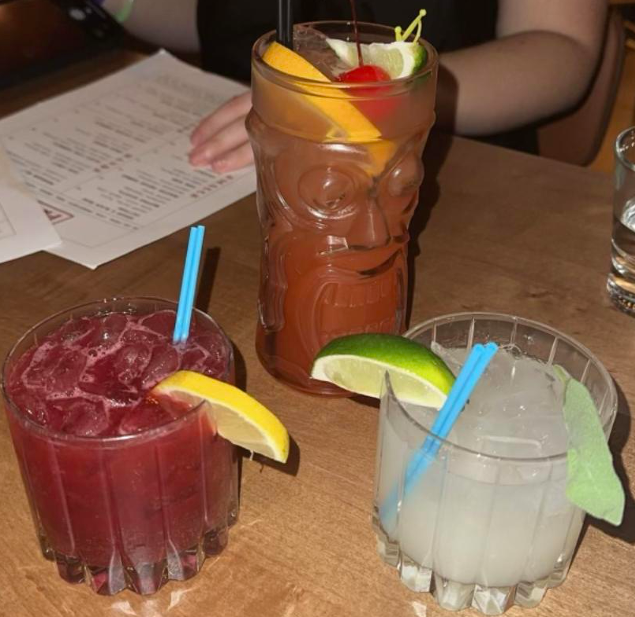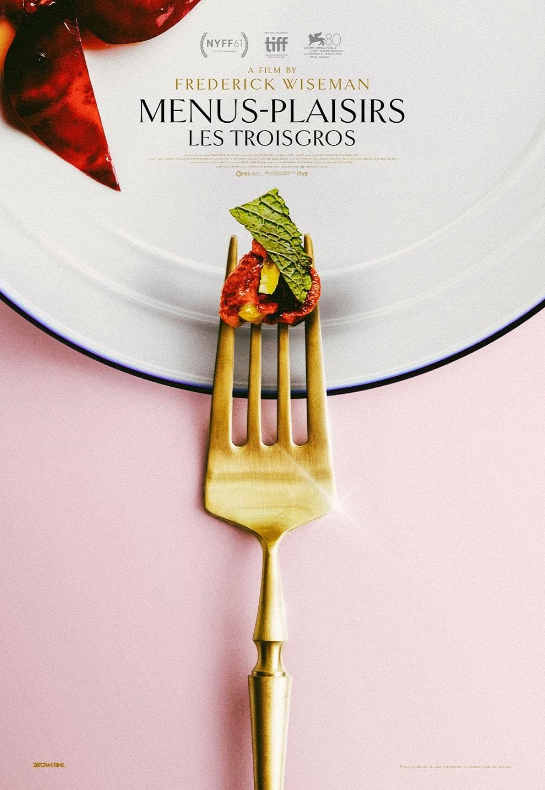
The UPub is a busy place on most weekday afternoons.
It’s located in the heart of the Campus Center directly across the concourse from the recently renovated Blue Wall Café. Already a well-trafficked destination for students of legal drinking age, it has seen its crowds grow even larger this year.
Founded in the early 1990s as the Graduate Lounge, the bar was renamed and renovated four years ago. The relatively cozy size of UPub both differs from and carries on the tradition of student-accessible drinking at the University.
For a brief time in the 1970s, the old Blue Wall was “the largest bar east of the Mississippi,” according to 1972 graduate Ed Rudner, who was a member of the Student Union Governing Board when the decision was made to sell beer and wine to students on campus.
At the time of the Campus Center’s 1970 opening, a liquor license was granted to the building for its catering service several floors above the concourse and the former top-floor restaurant, Top of Campus. Financed separately from other UMass construction projects, the Campus Center’s dining services were run independently of the campus’ dining commons.
With the license being granted to the building as a whole, a small section of Blue Wall was cordoned off as an area where students with a valid ID could order beer, wine and mixed drinks. It was about the size of today’s UPub, said Rudner, who worked for the Campus Center for a year after graduating as a director of purchases.
That all changed in 1973, however, when a law signed the previous year by then-Gov. Francis W. Sargent took effect and lowered the drinking age in Massachusetts to 18.
A move meant to match the lowered voting age and the age of eligibility for military service in the wake of the Vietnam War’s turbulent influence on American civic life, the lowered drinking age had immediate consequences for UMass; almost all of its students would now be of legal drinking age.
A debate broke out over whether to extend alcohol sales to the entirety of Blue Wall. Where there had previously been little controversy over the small section of Blue Wall set aside for serving alcohol, there was now a heated opposition from local bars and some sides of the public, according to Rudner.
Deliberating on the choice, the University reasoned that the student body, now almost completely of drinking age, would probably engage in drinking whether or not the campus served alcohol. Having a safe space where students could drink and socialize close to their dormitories was seen as a way to discourage and mitigate the possibility of reckless behavior like binge-drinking and drunk driving.
As Rudner recalls, Blue Wall was less than a mile from most students’ dorms and close to off-campus residences, making it markedly safer to walk home and reducing the likelihood of driving while intoxicated – which was the national problem that prompted the federal government to begin pressuring states to raise their drinking ages to 21.
Today, UPub offers wines, ciders and 25 varieties of beer at any given time, with six served on tap and the remaining available in bottles.
Supervisor Doug Jillson, who began working at UPub shortly after its renovation and transformation from the Graduate Lounge, said the options available – even the mainstays on tap – largely reflect customer demand.
While this is made evident by the frequently changing selection of bottles on the small displays above the bar and registers, and the comprehensive chalkboard list of options organized by category, nowhere is this more visible than the selections on tap, where UPub will not hesitate to switch out an underperforming beer.
In March, UPub began offering Goose Island’s IPA on tap, taking the place of the popular Yuengling Lager. But due to low sales by April and a lack of traction with customers compared to similarly-priced offerings on tap from Lagunitas and Berkshire Brewing Company, Goose Island IPA was taken off of tap and Yuengling was put back on.
The variety of options, as well as UPub’s sale of beer and wine only, differs greatly from the operation of the Blue Wall’s bar during Rudner’s time working there.
Serving drinks primarily at night, on weekends and several weeknights, the demand for mixed alcoholic drinks was so substantial, according to Rudner, that a few types of cocktails would be mixed in bulk in the 50-gallon soup drums from the kitchen and stored behind the bar in 20-gallon coffee urns for dispensing.
When it came to beer, Blue Wall saw deliveries of fresh kegs up to two or three times a night due to the lack of storage needed for the volume to meet the sheer demand.
Entertainment was different too, according to Rudner.
While UPub currently hosts weekly comedy and trivia nights and occasional special events, Blue Wall’s bar hosted entertainment such as live music three or four nights a week, including musical acts as famous as the new-wave rock band The Cars.
This eventually led to the installation of a slightly elevated platform for performers in a corner of the old Blue Wall. It would stay in place even after the end of Blue Wall’s time as a drink-serving establishment and after the end of live shows, remaining in place until the facility’s renovation over the summer of 2014.
Things eventually changed at the old Blue Wall, though. The pool of students of drinking age diminished with the successive increases in drinking age in 1979 and 1985, making the scale of the venture less feasible and causing the University to cease alcohol sales in Blue Wall.
A brief experiment with closing the Graduate Lounge and reviving bar service at Blue Wall in 2003 proved unpopular and unprofitable and ended two years later with the Graduate Lounge’s reopening.
Things have changed more generally, too. In the last 40 years, the national conversation around alcohol and alcohol abuse has painstakingly opened up in fits and starts. This has been reflected positively in a greater number of nuanced portrayals of alcoholism and discussions about it in popular culture.
As UMass has grappled with its outsized reputation as a party school with widespread underage drinking, particularly in the wake of 2014’s highly publicized “Blarney Blowout,” its on-campus alcohol venues have reflected a change in culture from years past.
Today, the UMass UPub is a small, cordial oasis on campus, distinguished by a convivial atmosphere, a diverse selection of beverages and friendly, attentive staff.
It offers a welcome space for students to relax with friends and peers, and in the larger picture, drink as part of a responsible community rather than for its own sake. This little pub stands out both as a destination on campus and as the successor to one of the most fascinating parts of the modern history of UMass.
Griffin Lyons can be reached at [email protected].


















